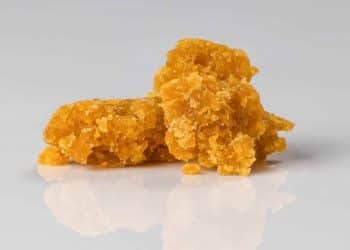The unacceptability of cannabis is foreign and unnatural to many of us living through today’s green revolution. This is especially true for those who have made the decision to work in the cannabis industry. It’s easy to forget that not so long ago, cannabis was disapproved of by the overwhelming majority of American society.
Gallup has been tracking American attitudes about cannabis legalization for 47 years, asking: “Do you think the use of marijuana should be made legal, or not?” The first poll in 1969 revealed only 12% of those surveyed were in favor of legalizing cannabis. Today, that number is five times higher—a whopping 60%.
And yet, even as societal morality has shifted, these changes are not new. Cannabis, after all, has been a part of human existence for millennia. Hemp has been an integral part of the American experience since the Colonial era. Proponents of cannabis prohibition have quite hypocritically allowed the propagation of alcohol and tobacco to continue unabated. And yet, it turns out that even in the so-called ‘Dark Ages,’ interest in learning about cannabis was bubbling just under the surface.
In a fascinating internal memo written by an unnamed Phillip Morris employee all the way back in February 1970, we see a professional in the tobacco industry promoting cannabis legalization, “equating its use with alcohol and cigarettes.” The memo was written in response to a request by the Bureau of Narcotics and Dangerous Drugs (now the DEA) to Phillip Morris “to perform some chemical analyses on [cannabis].” The text is worth quoting at length:
“We regard [this request] as an opportunity to learn something about this controversial product, whose usage has been increasing so rapidly among the young people.
“Business theorists often point out that the enterprises which recognize the human needs that they are serving tend to endure, while those too closely wedded to a product are sometimes trapped by its obsolescence.
“We are in the business of relaxing people who are tense and providing a pick up for people who are bored or depressed. The human needs that our products fill will not go away. Thus, the only real threat to our business is that society will find other means of satisfying these needs.”
The employee then admitted that even in his time, “Many regard [cannabis] as an alternate, and perhaps superior, method of satisfying the needs that cigarette smoking satisfies.”
He then goes on to reference a New York Times article that ran on February 10th, 1970. Entitled “Lindsay, as Parent, Voices Concern on Marijuana,” the article quotes then-Mayor of New York City John V. Lindsay responding to questions at an impromptu City Hall news conference with Howard J. Samuels, then-Democratic candidate for Governor of New York. Samuel’s 17-year-old son was arraigned the previous week on charges of possessing hash.
“Many regard marijuana as an alternate, and perhaps superior, method of satisfying the needs that cigarette smoking satisfies.”
Mayor Lindsay was quoted saying that “teenagers felt that there was ‘a good deal of hypocrisy’ among older persons. ‘We rationalize the use of cigarettes and alcohol,’ he said, ‘but the kids question this. Asked if marijuana should be legalized, Mr. Lindsay said that there were ‘a lot of irrational laws’ concerning possession of marijuana.”
These conversations occurred nearly 50 years ago, yet cannabis not only remains illegal for use on a federal level, but remains as tightly controlled and regulated as it was back then. It—and its derivatives—are still classified as possessing no potential for medical use…for now.
“‘We rationalize the use of cigarettes and alcohol,’ he said, ‘but the kids question this.”
The Phillip Morris employee additionally admitted that “we have done nothing so far because of the product’s illegality and out of concern for our image.” With Canada—a modern, industrialized country deep in the upper echelons of Western Civilization—legalizing recreational cannabis, tobacco companies no longer need contend with these issues. Will Big Tobacco finally get their fingers green?












